BERBUKA BERKONGSI
Photo Essay: Breaking fast with Malaysia's migrant construction workers
Every construction site in Malaysia has a kongsi, or makeshift workers’ dorms. These dorms are usually shacks assembled from plywood and zinc sheets, but often look more like stacks of discarded construction material.
But security for these tilting, creaking rooms, can be unusually tight. Tall zinc fences keep the conditions out of sight, and guarded gates refuse entry to non-workers.
With the help of our friends at Migrant88, R.AGE spent two nights breaking fast with the workers.
Photos by Elroi Yee.
Cook
Communal cooking equals cheaper meals. At this kongsi, ten of the workers cook for around 50 Bangladeshi workers every day. Pictured here are four of the ten. To handle the industrial quantities, they’ve fashioned an outdoor kitchen with leftover plywood and scaffolding, and fuelled it with scrap wood. On the menu today – rice polao and curry chicken.
COMING OF AGE
The younger workers loiter together, smoking, singing, joking. “For me now, the most important thing is to find a wife,” says Arif, 18, from Madura, Indonesia. “Then I wouldn’t be bored as I can joke with her, chat with her.” Can’t you joke and chat with your friends here? “That’s boring. It’s different with a woman.” Arif has been working in Malaysia since he was 15.
Phone, Fan, Bed
After meals, most workers retire to their mobile phones. Almost every worker has one. They use it to keep in touch with their families, and for entertainment. Two or three workers share each room. No bedding is provided, so workers sleep on the floor. In the daytime, the heat in the rooms can be so unbearable that the first thing workers buy when they move into a kongsi is a table fan.
Broken Raya
While the men indulge in cigarettes and chess, a woman prepares for the tomorrow’s breakfast. “I miss celebrating Ramadan in Indonesia,” she tells. “But though I miss it, there is sadness, because I don’t have enough money to go home.” She had been cheated of RM8,500 by an agent who promised her a work permit, while her previous employer cheated her of seven months’ wages. “If I can get my salary, I will send some money home for Raya. Pity my mother and my son, they don’t have money too.”

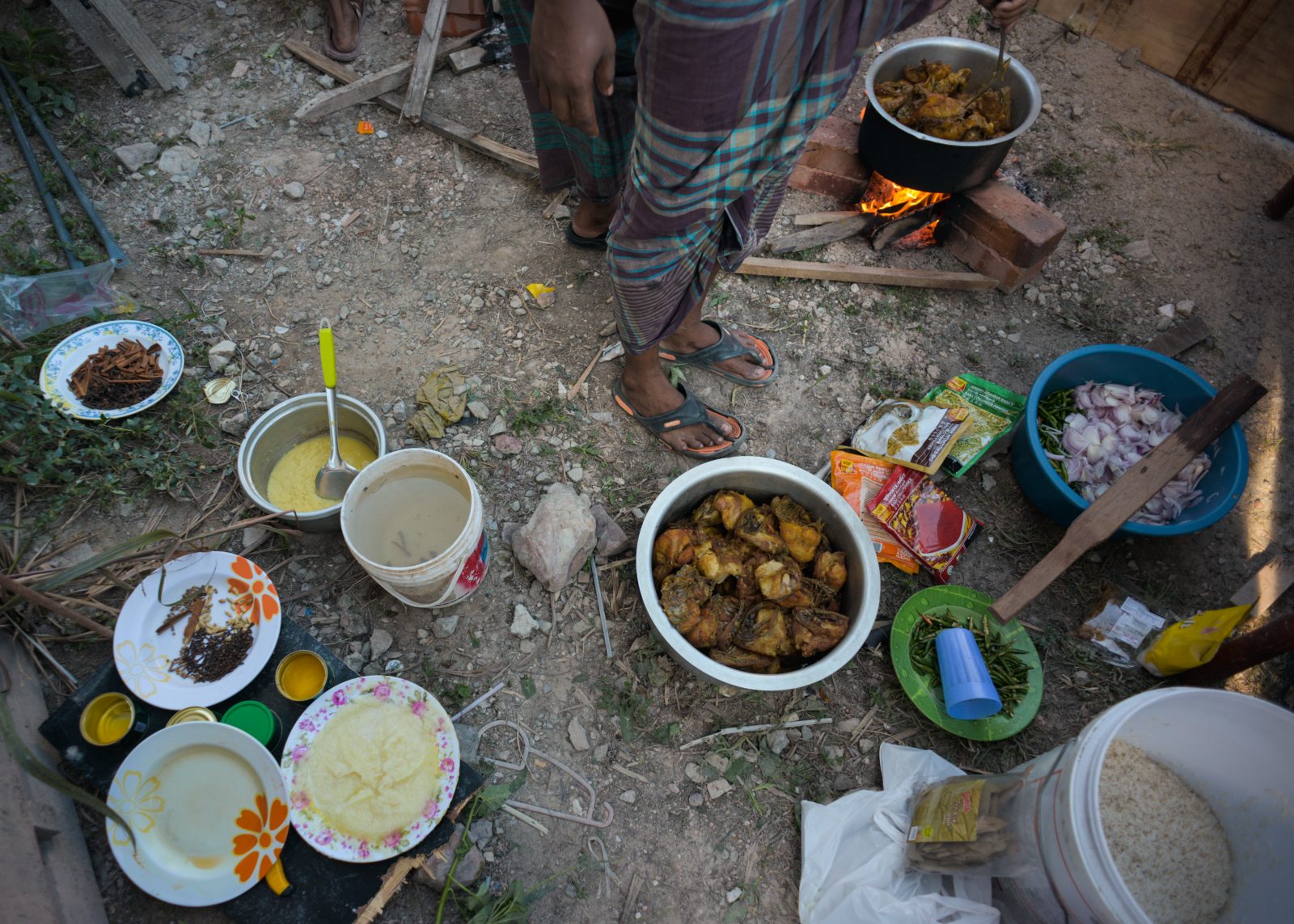
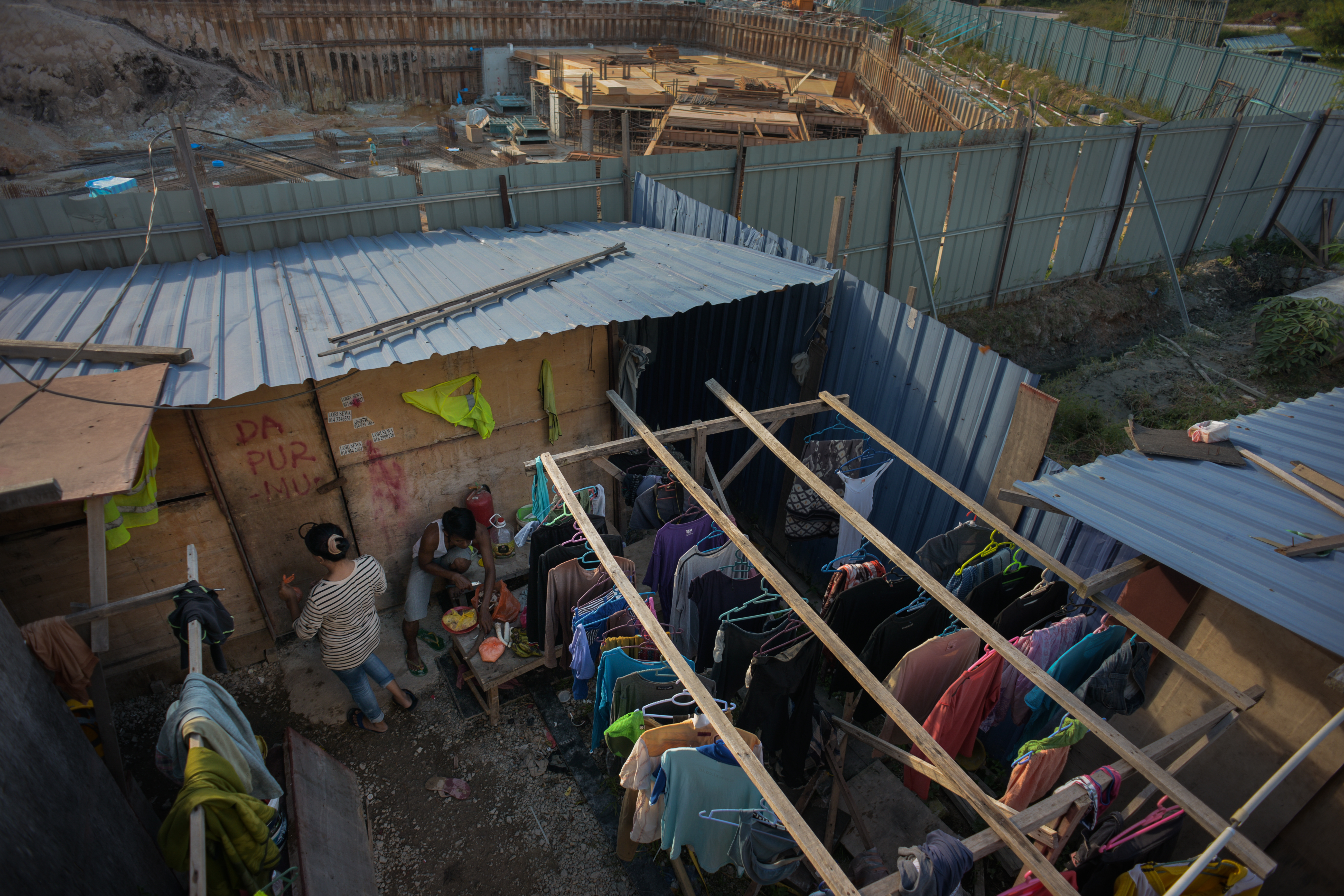
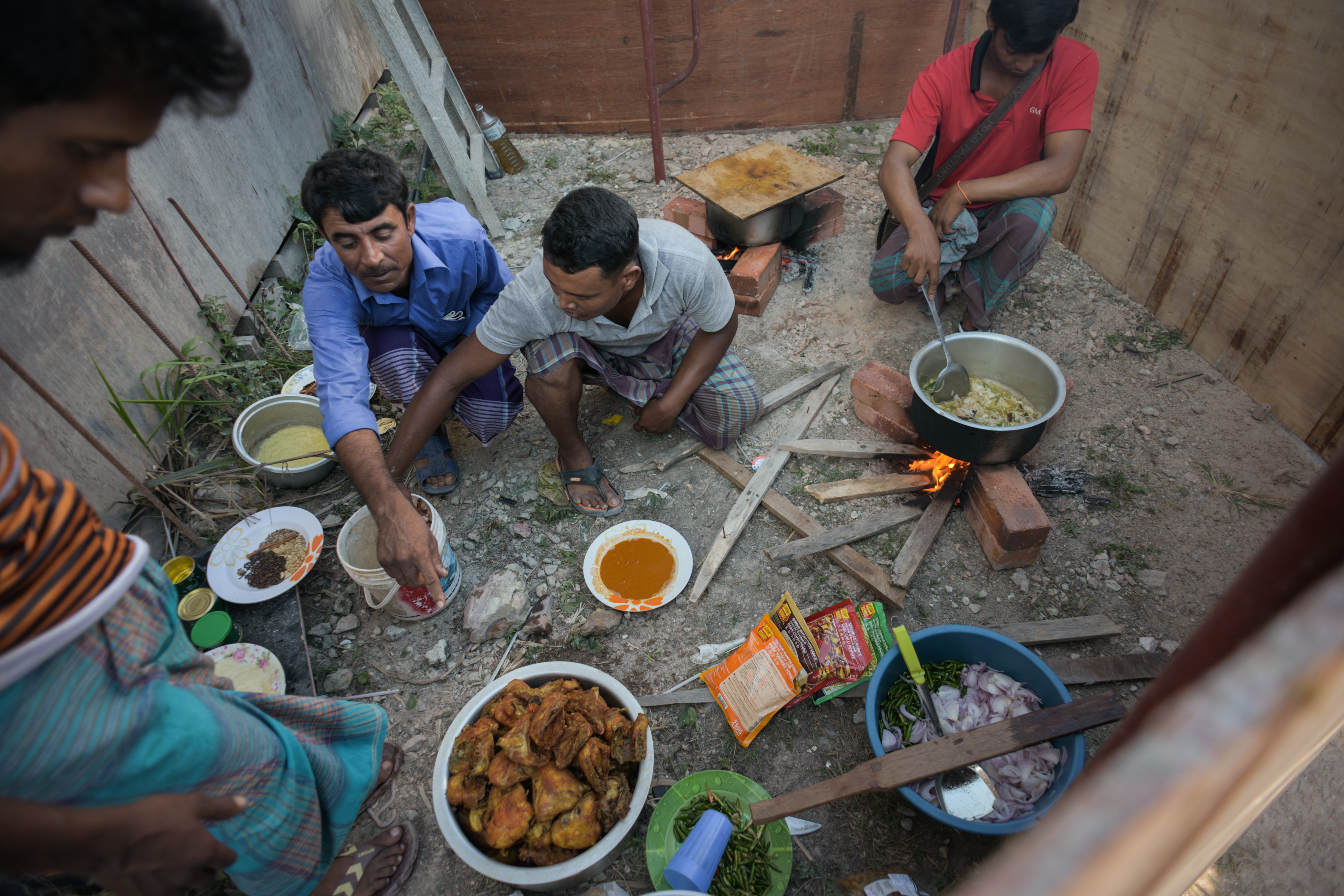
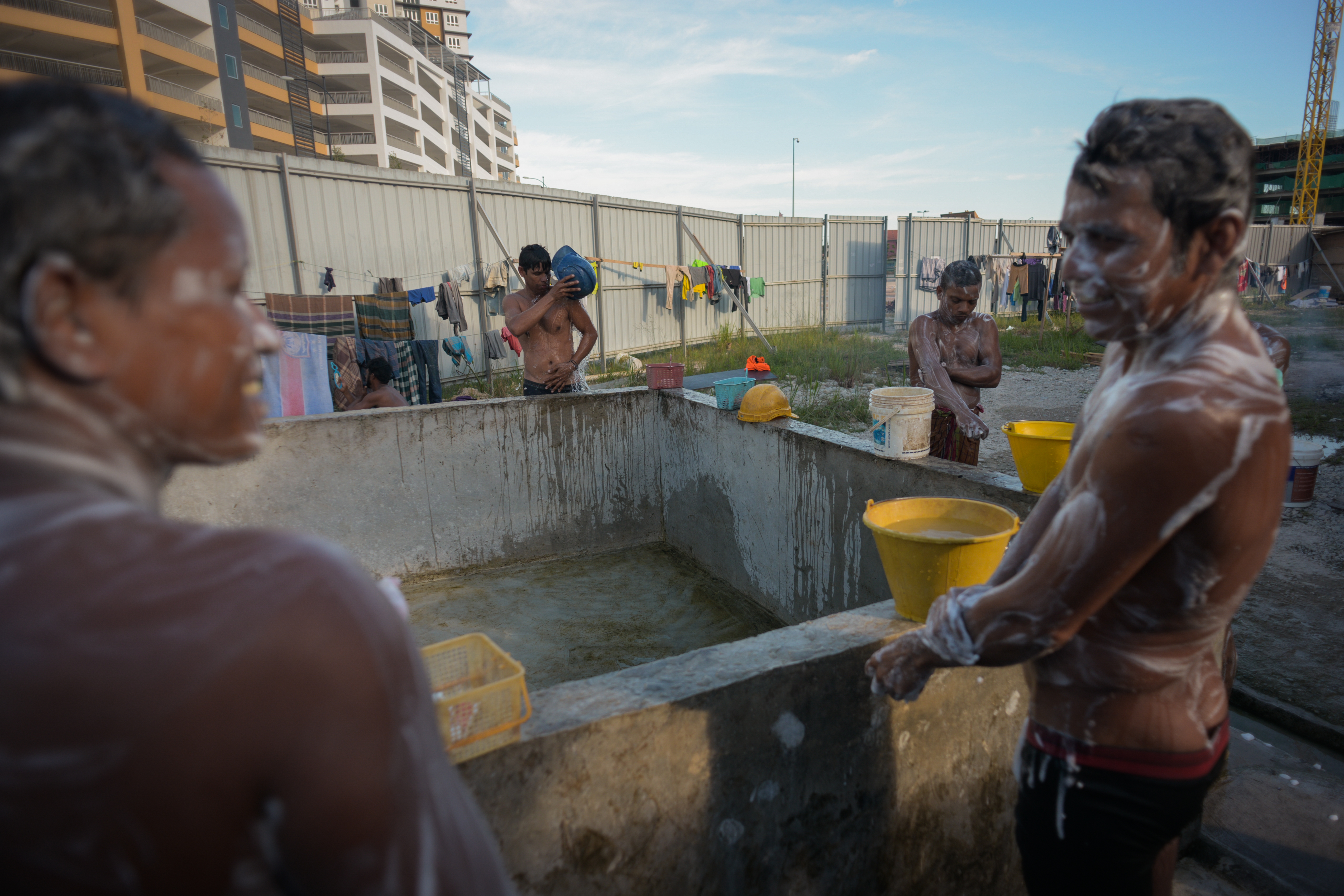
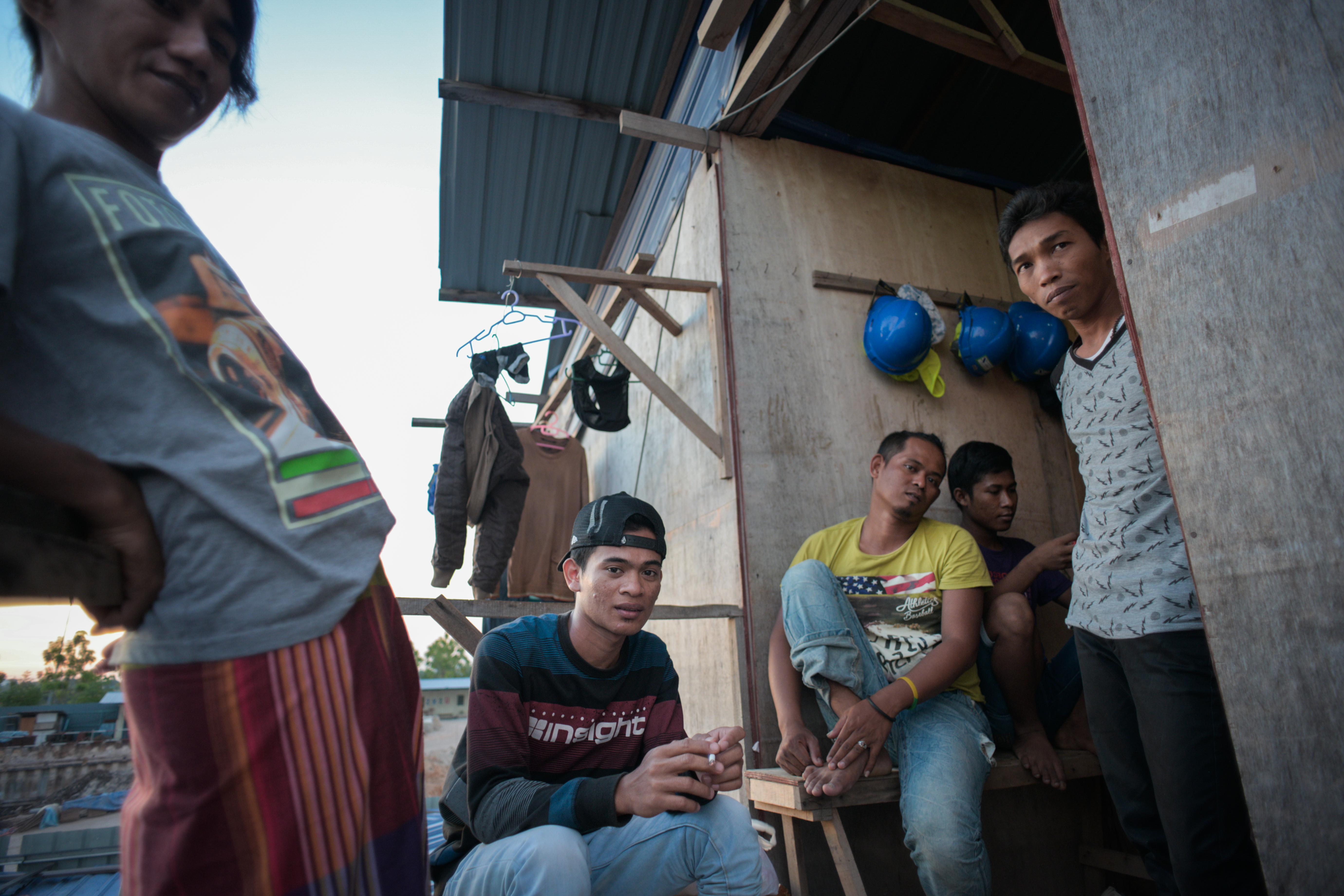
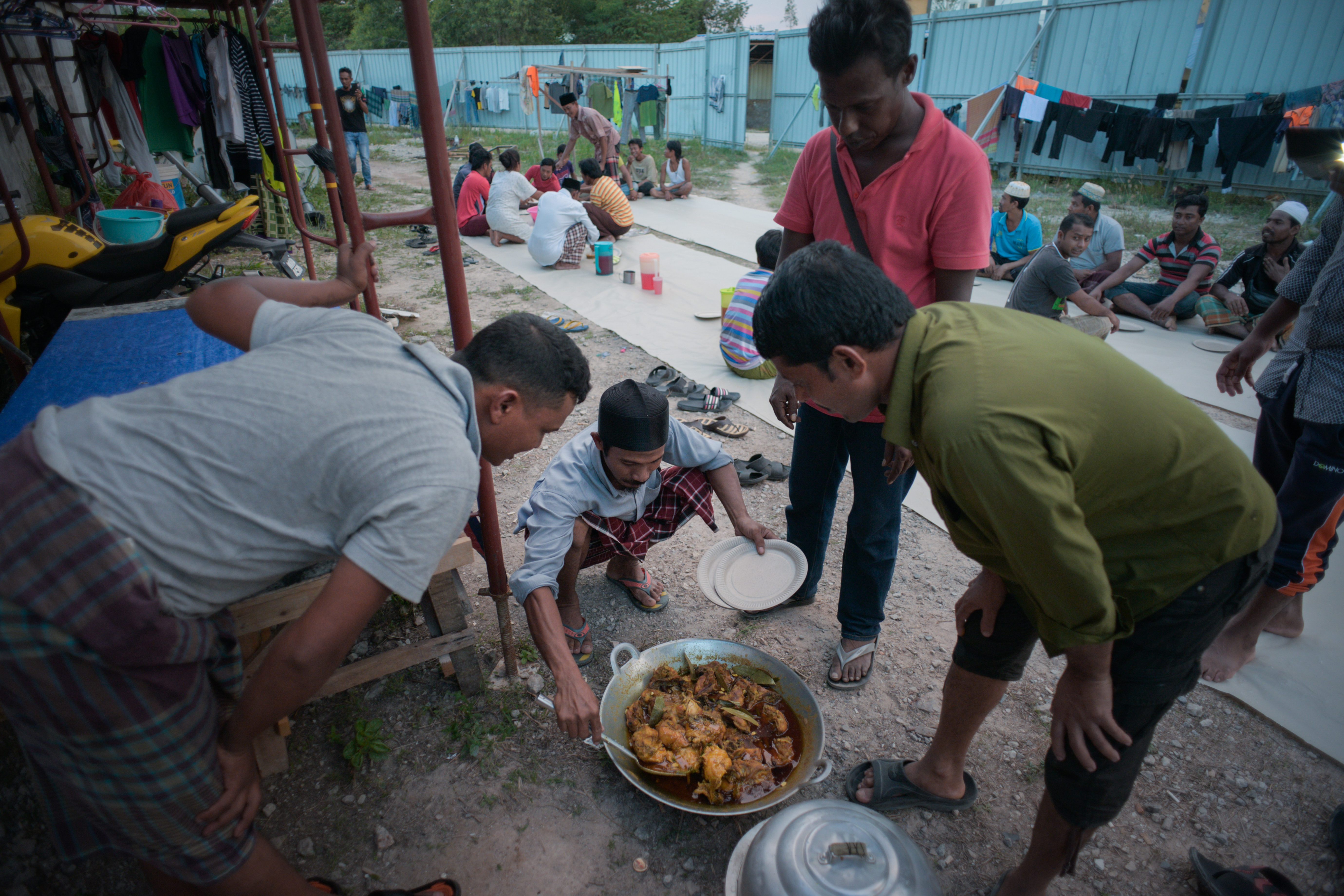

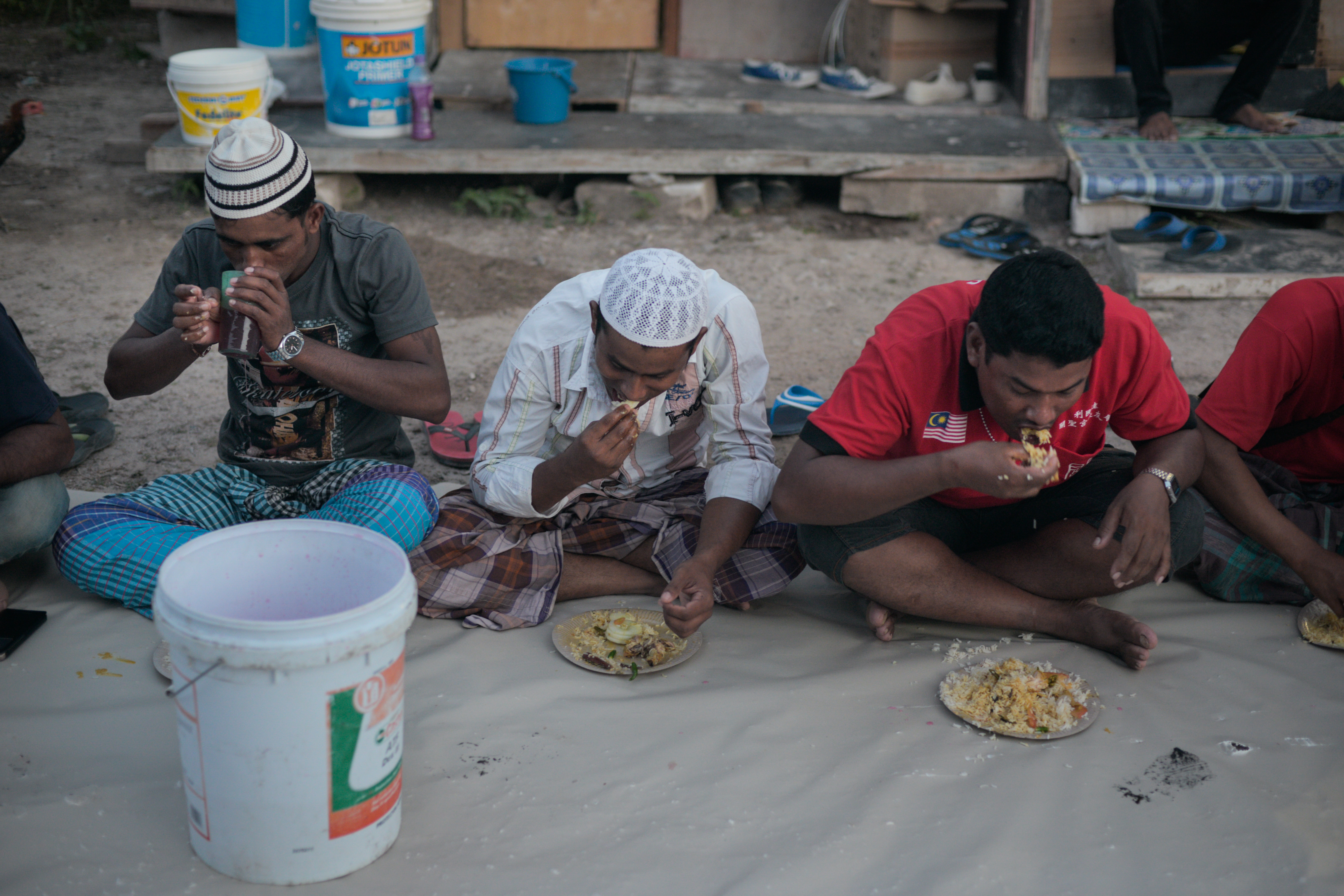

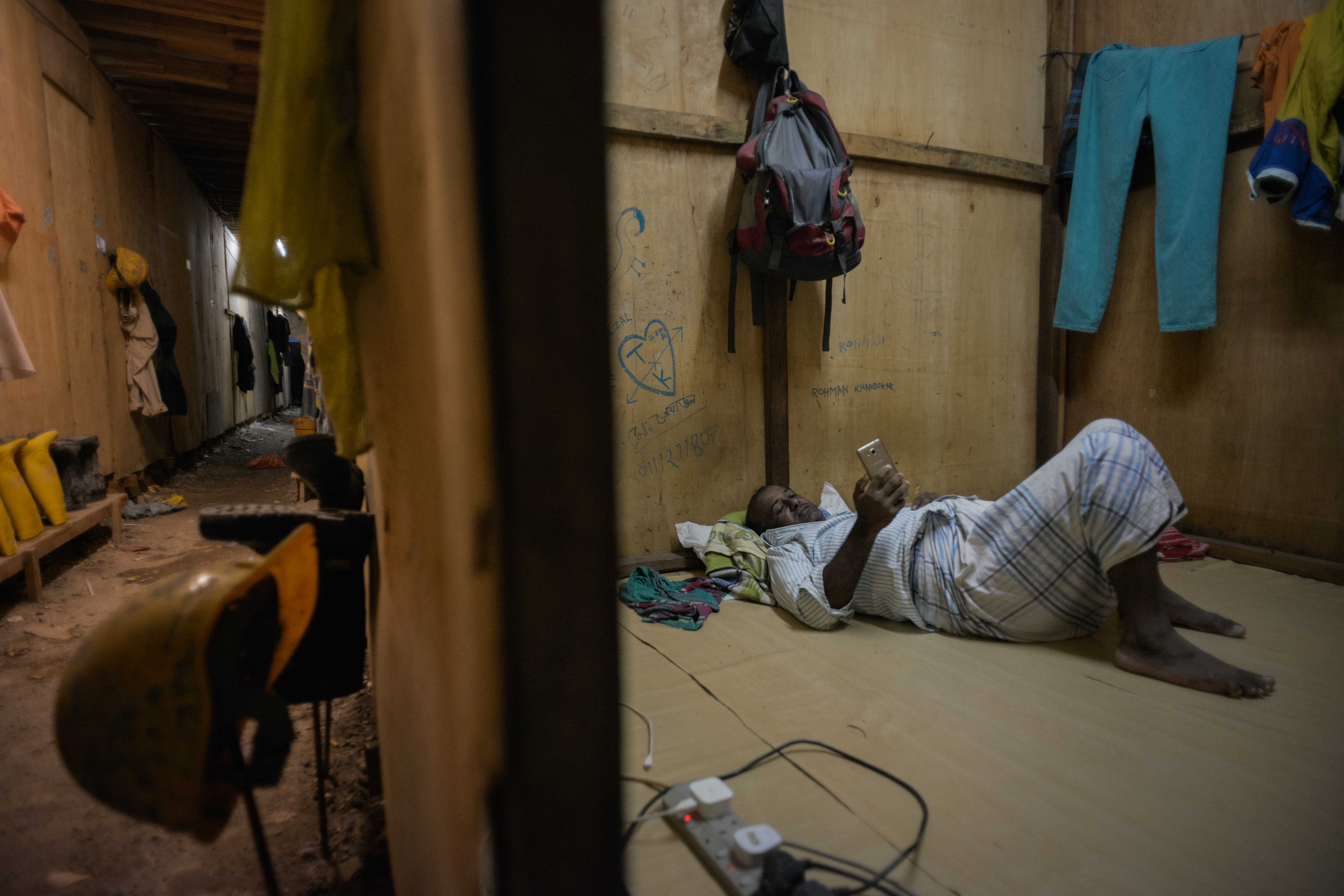
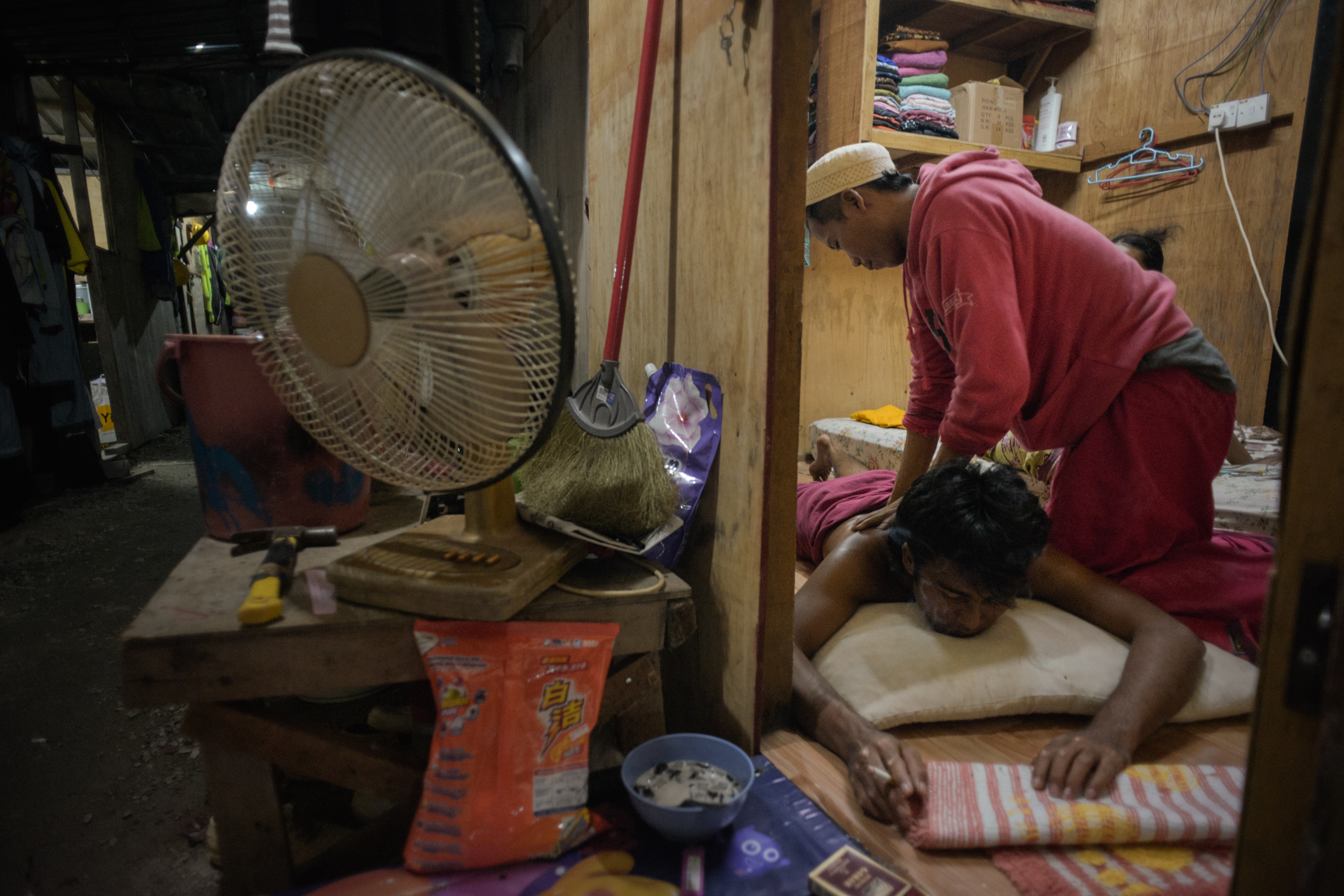
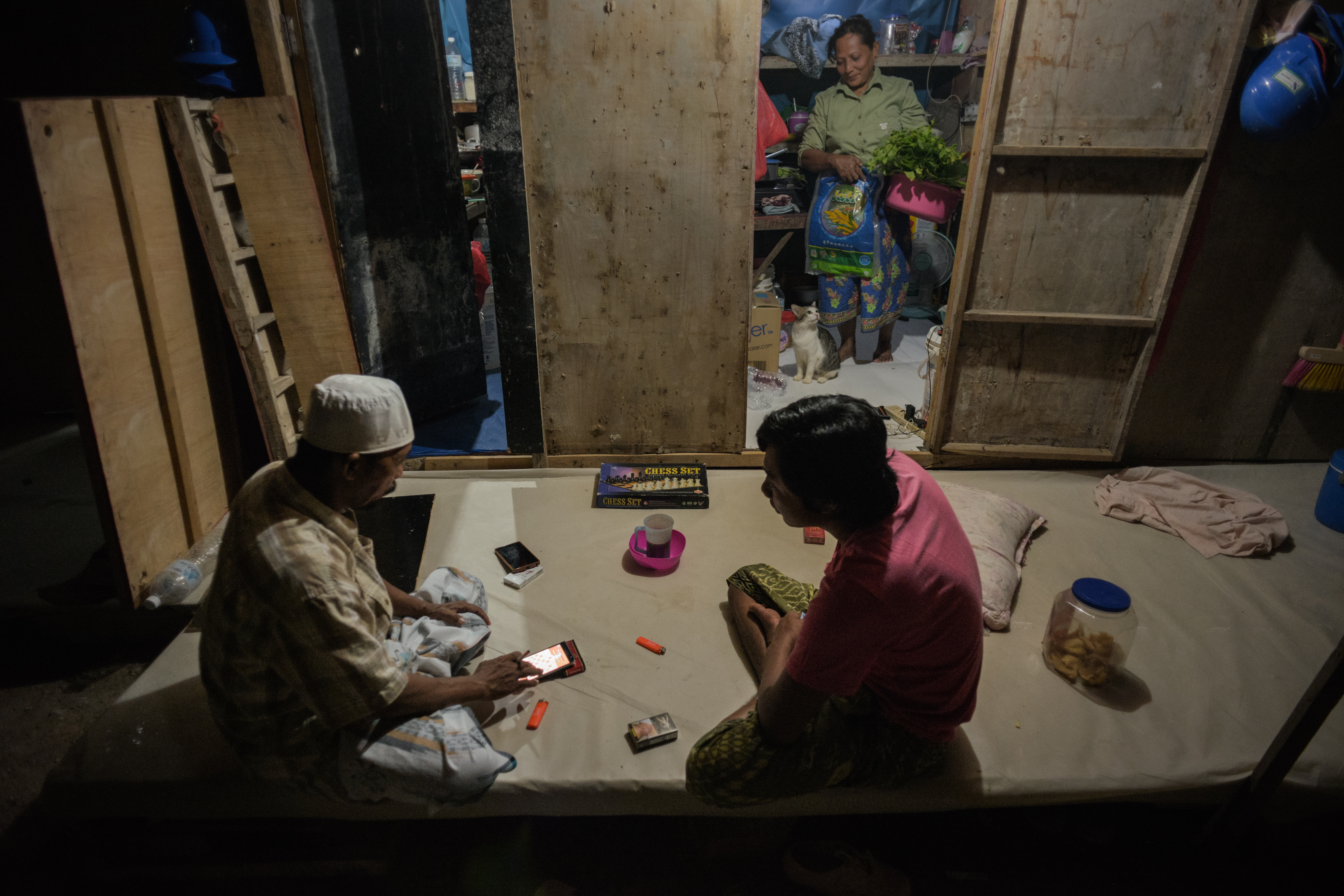
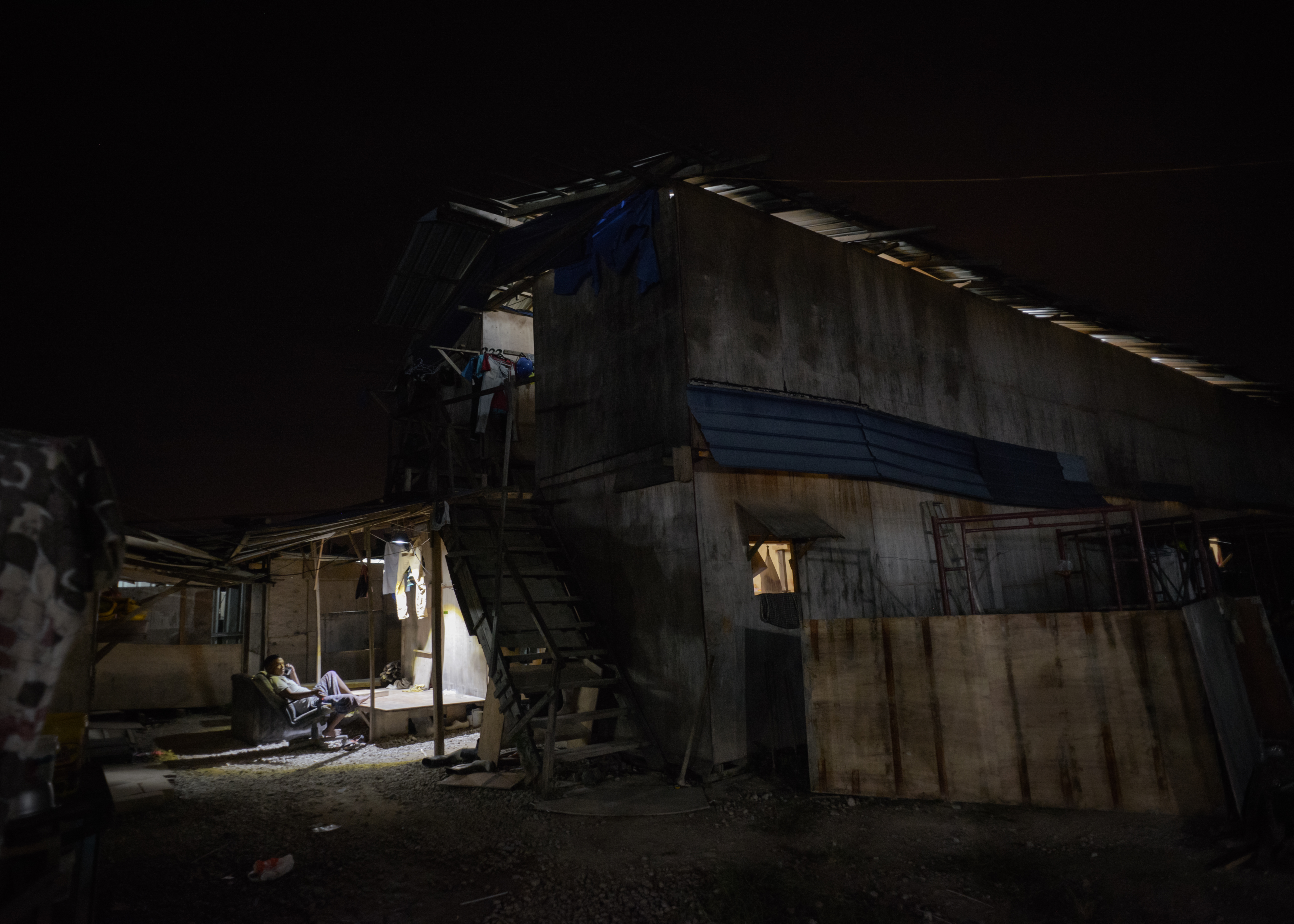
Tell us what you think!